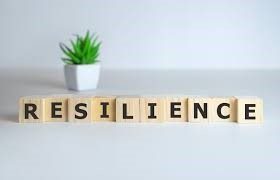
May 10, 2021, by Rupert Knight
Teacher resilience in Covid times
How can we support teacher resilience in Covid times?
In this blog Esther Fulton considers how the current pandemic has affected the resilience of beginning teachers and suggests how key support can be put in place to help with this.
As part of the ITE curriculum here at the University of Nottingham, one of the phases of our PGCE primary course focuses on the question ‘Is teaching more complex that you thought?’ During this current Covid period, we can realistically confirm that our beginning teachers have found that teaching is not only complex, but has led to many unforeseen challenges.
All our PGCE students have been fortunate to have been engaged with school placements this year. They have had to adapt to Covid-secure school settings as well as familiarise themselves with on-line university sessions. This year, more than ever, they have had to demonstrate teacher resilience in abundance. As this article in the Chartered College of Teaching Journal suggests, throughout the course we have tried to create a culture where trainees feel nurtured, valued and fulfilled.
In every walk of life, the effect of the pandemic has created complications. Teacher education in particular is never that straightforward, but this year we have needed to focus even more on teacher resilience and find ways to support our beginning teachers through these complex times.
Some ITE providers ‘assess’ each applicant’s resilience by asking them to take part in Robertson Cooper’s model of resilience, where they ‘measure’ areas of confidence, social support, adaptability and purposefulness. We have not felt the need to do this with our beginning teachers but instead try to focus more on helping them build their own resilience. As Day et al (2011) confirm:
‘Resilience is not simply an individual trait, but a capacity that arises through interactions between people within organisational contexts’ (p.3)
So how can our beginning teachers build resilience and cope more effectively with the obstacles that have arisen during their teacher training this year? According to Duffield and O’Hare (2020) there are three key areas that will enhance teacher resilience. These are a sense of belonging, help-seeking and learning.
Sense of belonging
Despite our best efforts at creating an online community, this year our beginning teachers have missed out on their sense of belonging. Many have only met their cohort face to face a handful of times. Instead, they have relied on the sense of belonging that comes from their school community. This needs to be a community of support to help them develop their teaching and learning. Being part of the school context and being accepted as a member of the school team helps students to develop their teacher role and do their best for their own pupils as well as for the whole school. As Schwartz et al (2016) claim:
‘Feeling that one belongs will increase effort and decrease distracting thoughts of inadequacy or alienation.’ (p. 24)
In any crisis situation teams and organisations tend to pull together and our beginning teachers will have witnessed school communities supporting each other and building even stronger relationships which they can feel a part of. In this pandemic, our beginning teachers have also refined distinctive kinds of relationships with their pupils- whether this has been with small face to face groups or with on-line sessions. Engaging and communicating with pupils remotely is a skill that all teachers have had to develop and it is difficult to judge whether they have been effective, as highlighted by this recent research by Rasmitadila et al. Beginning teachers have understood the importance of engaging pupils with technology and how to be more aware of safeguarding issues with remote learning. They will also have had to establish these positive relationships with their class when they returned to school after lockdown.

Seeking help
Beginning teachers can feel vulnerable and often view asking for help as evidence of failure or weakness. They need to know that there is someone who will listen, offer advice and support and someone who they feel connected to. All our beginning teachers have a personal university tutor who guides them throughout the whole year, observing them in the classroom and assessing their academic work. Alongside the tutors there are the school mentors who have played such a valuable part in this training year. Everybody wants to be assured that they have someone ‘on their side’ and this is where this mentor-student relationship is so important. It is appreciated that mentors are having to manage unknown situations within their own school contexts during this year and at the same time support a beginning teacher. However, research by Shosh Leshem has claimed that the most successful student-mentor relationships are based on shared values, goals and understandings. Beginning teachers are looking for mentors who give constructive feedback, make time for them and give them a feeling of confidence. It is not about one-way support, that is, getting support, but rather making a contribution as well:
‘It is clear that individual differences, together with people’s perceptions of how they were responded to, for example whether or not they felt that their contribution was valued or whether they felt that they were met with indifference, affected their participation’ (Le Cornu, 2009,p.719)
Learning
This year there should be a specific focus on doing more of what is working well. The beginning teachers need to be made aware of the skills that they have acquired already over this challenging year. Of course they will still have targets to work towards, and this will always be the case, but they should also be encouraged to celebrate their successes. In this current climate, all experienced teachers have had to learn to adapt and rethink their teaching pedagogies in order to accommodate remote learning. Some have had to leave their comfort zone and so have found it challenging and may have made mistakes along the way. Being open and honest about these mistakes and learning from them, helps to humanize them in the eyes of our beginning teachers. By allowing beginning teachers to see them tackling their own difficulties, mentors have shown that making mistakes is an important part of learning. Beginning teachers get to see that teaching is a job where continued learning and professional development is taking place. You do not become the finished article when you complete your Early Career Teacher (ECT) period.

Going forward
As our beginning teachers continue their training we need to focus on the positives that have already happened and how we can continue to nurture resilience and well-being as they progress into their first ECT year. This has certainly been an unusual year but new skills and relationships have been formed. Where beginning teachers are able to establish trusting, respectful and reciprocal relationships they can foster energy, creativity and flexibility. A key part of supporting teacher well-being and resilience and assisting beginning teachers is having a collective responsibility.
‘Employing bodies, school leaders and more experienced colleagues may need reminding of the key role they play in enabling and developing such relationships. Likewise, formal and informal mentoring systems have the potential to play a significant role, as do family and friends, in supporting beginning teachers’ (Mansfield at al, 2014, p.563)
For our PGCE students this means we need to continue to involve tutors, mentors and whole school communities to work together. This should always be fundamental good practice whether there is a global pandemic or a ‘normal’ training year.
References:
Le Cornu, R., 2009. Building resilience in pre-service teachers. Teaching and Teacher Education, 25(5), pp.717-723.
Mansfield, C., Beltman, S. and Price, A., 2014. ‘I’m coming back again!’ The resilience process of early career teachers. Teachers and Teaching, 20(5), pp.547-567.
Schwartz, D.L., Tsang, J.M. and Blair, K.P., 2016. The ABCs of how we learn: 26 scientifically proven approaches, how they work, and when to use them. WW Norton & Company.
No comments yet, fill out a comment to be the first

Leave a Reply